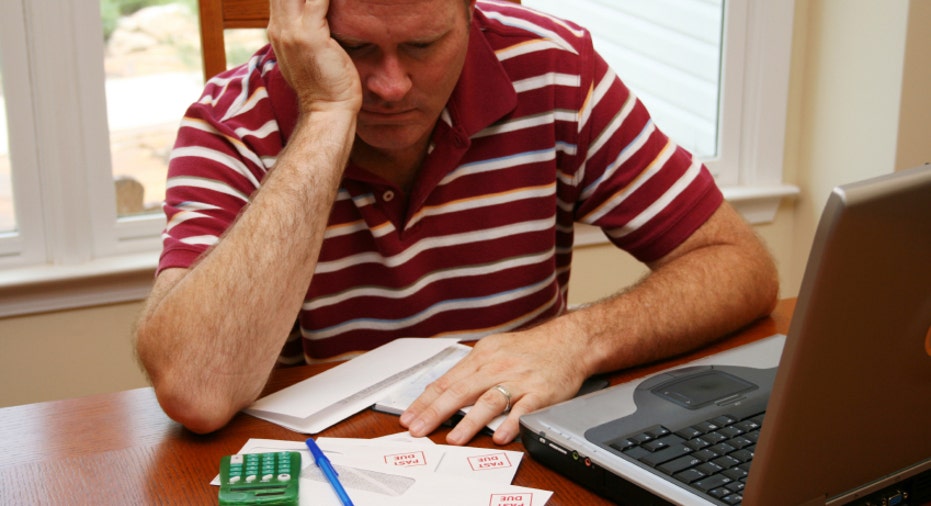Three Tips to Preventing Personal Bankruptcy

Crippling debt doesn’t always mean filing personal bankruptcy.
It may be hard to see the light at the end of tunnel while screening calls from debt collectors, opening massive credit card bills and sinking from student loan debt—but experts say there are many ways to keep creditors at bay while wildling away mounting debt without filing for bankruptcy .
“There’s still a bunch of debt out there and a bunch of uncertainty, says Todd Hills, credit and loan expert and CEO of Pawngo.com, a site that lets consumers secure cash with their assets. “Still it’s better to take action to avoid bankruptcy because once you file for bankruptcy you are below the credit risk line.”
Filing for bankruptcy can trash a credit score for years to come, so experts offer these tips to help dig out of debt:
Call Your Creditors
The 2008 financial crisis caused a wave of personal bankruptcy filings and left creditors stuck with a lot of unpaid debt. Because of this, creditors are more willing to work with cash-strapped consumers to create repayment plans.
“A bankruptcy is the worst option for all parties involved,” says Anisha Sekar, vice president of credit and debt products at NerdWallet.com. She advises consumers call their lender at the first sign of trouble and start a conversation about their financial situation.
It’s important for debtors to be honest about how much they can afford to pay each month. “Consumers should view lenders as an ally as they both work to minimize harm, since declaring bankruptcy is not without cost to the lender either,” she adds.
Boost Your Cash Flow
Liquidating assets to boost cash flow can help consumers get out of a bind. Often times there are unnecessary and unused items sitting around the house that can raise some money. Evaluating the necessity of monthly bills like cable or cell phone can also help shore up some extra funds to pay down debt.
If possible, debt-laden consumers should consider taking another job to reduce a household deficit, or look for odd jobs that can also provide a cash injection.
Ask for Help
Taking the ostrich approach to a debt crisis is the worst thing to do, experts warn. Contact a debt counselor for help, but do research before agreeing to work with an agent or agency.
There are scam debt counseling companies out there that looking to prey on vulnerable people. According to Sekar, a debt counselor should never charge a client for an initial consultation. Nonprofit credit counseling agencies can provide advice on a financial situation and budget and cal also negotiate with creditors to get rid of late fees, potentially lower the interest rate and extend loan terms. Check the National Foundation of Credit Counseling or the Association of Independent Consumer Credit Counseling Agencies for referrals, Hills suggests.
Avoid the Bankruptcy Temptation
While filing for bankruptcy and cleaning the slate is appealing, it comes with long-term repercussions. It ruins a person’ credit for several years, which makes it hard to get a mortgage, lease a car or open a credit card. Some employers are also running credit scores before sending an offer letter.
“It is pretty catastrophic for your finances,” says Sekar. “It’s the nuclear option if you find yourself indebted and don’t have anywhere else to turn.”



















